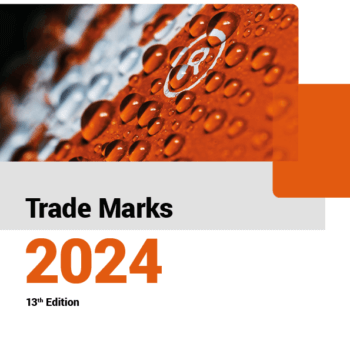
Positive IP changes afoot in the Gulf Cooperation Council (GCC)
Brand protection in the GCC and wider Middle East has historically been fraught with difficulties. High fees and burdensome formality requirements have long been a source of frustration for international filers. When coupled with the general lack of suitable infrastructures and limited community knowledge of intellectual property (IP) rights, international brand owners had reason to be concerned when considering the Middle East as a jurisdiction to protect and launch in.
While change was typically piecemeal, the last couple of years has started to see a significant gear shift in the protection of IP, particularly trade marks. Leading the charge is the UAE and Saudi Arabia, where competition between the two powerhouses is forcing change with respect to IP for the better.
IP updates in the United Arab Emirates (UAE)
September 2021 saw the UAE accede to the Madrid Protocol, followed by a new trade mark law that came into effect in January 2022. While the UAE was not the first GCC country to join the Madrid system and the new law still leaves some gaps, the updates are certainly a step in the right direction, solidifying the UAE’s intention to adhere to international best practice and standards.
Of particular note for the Madrid system in the UAE is that while applicants are not required to submit a legalised POA upon designation of the UAE in a Madrid filing, it will be required if the application faces a refusal or opposition.
More recently, the Ministry of Economy has also been allowing the renewal of trade marks to be completed without a legalised Power of Attorney. While there has not been any official announcement on this, it was confirmed verbally by the Ministry of Economy to legal practitioners in May 2023.
As for the multi-class filing system that came into legal effect in the UAE under the new law, it has not yet been implemented in practice and all applications are still on a single class basis. We are however hopeful that this will change in the coming months but expect applicants will still be required to pay single class rates for each filing.
IP updates in Saudi Arabia (KSA)
Not one to be left behind, Saudi Arabia is also making significant changes. While there is no confirmation on joining Madrid, one of the most momentous changes that KSA made recently is accession to the Hague Apostille Convention, which took effect on 7 December 2022. This removed the need for legalised Powers of Attorney and supporting documents, a long-standing requirement of the region generally that has led to much debate. Whether this encourages the UAE to make a similar move remains to be seen.
Saudi Arabia also announced its intention to operate a public search function, which is a significant departure for the region. Historically, searches were conducted by trade mark office officials, which incurred a fee and results were completely dependent on the sophistication of the examiner conducting the search. At present, a beta version of the search platform is in operation in 4 languages (Arabic, English, French and Japanese), but is limited to marks registered from 2013 onwards. Once the testing phase completes (there is no indication when this might be), it will be interesting to see whether this will completely replace the need for an official search, which would be an impressive change.
Saudi Arabia is also working on a new intellectual property law, which was open to public consultation from 5 April 2023 to 5 May 2023. It appears to be an umbrella law intended to harmonise the specific niche laws and once the final version is released, we will be able to comment further on its impact for international brand owners.
Moving forward
As the GCC continues to attract more international investment, it has an obligation to ensure that intellectual property rights are taken seriously from protection all the way through to enforcement. While the UAE and Saudi Arabia will continue to lead in this respect, the remaining GCC countries will be slower to adapt. That said, as the economy moves from strength to strength, we have no doubt that more valuable changes will be made across the IP landscape, easing some of the historic challenges.
If you have any questions as to the protection and enforcement of your brand in the Middle East region, please do get in touch.








